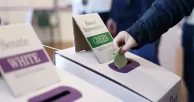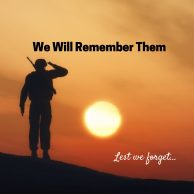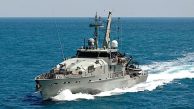
Forgetting Our Peacekeepers
ED: The following media release was sent by Paul with a request to publish:
PAUL COPELAND, OAM, JP
Medallic Recognition Project | Issues and Research Team
Australian Peacekeeper and Peacemaker Veterans’ Association Ltd
Suite 6, 18 Napier Close Deakin ACT 2600 | PO Box 115 Deakin West ACT 2600
Mobile: +61 (0)419 355 226
Forgetting Our Peacekeepers
The images from the Middle East war remains confronting across social media feeds, online
discussions, and news channels.
Vision of those kidnapped, injured or killed in the initial Oct 7 attack and ongoing conflict in
Gaza and Lebanon shows families, especially women and children, killed or starving in the
military response. It demonstrates how awful war can be especially to the innocents.
With recent increases rocket and artillery exchanges on the border with Lebanon, in addition to
the fights in the Red Sea and Yemen, this conflict is rapidly spreading.
What isn’t widely known is Australian Defence Force members are exposed on the frontline of
the Lebanon border today as peace observers. One Australian was recently injured – yet their
injuries aren’t classified as occurring under warlike service, diminishing their eligibility for
certain benefits and compensation.
Operation Paladin is Australia’s contribution to the ![]() UN Truce Supervision Organisation (UNTSO),
UN Truce Supervision Organisation (UNTSO),
established in 1948 to supervise the truce agreed at the conclusion of the first ![]() Arab/Israeli War.
Arab/Israeli War.
Involving ![]() Israel,
Israel, ![]() Syria,
Syria, ![]() Lebanon and
Lebanon and ![]() Jordan.
Jordan.
Australian personnel have supported ![]() this operation since 1956 across a range of roles with
this operation since 1956 across a range of roles with
currently 12 members deployed. UN personnel staff Observation Posts (OP) as UN Military
Observers. An OP usually consists of three members who spend up to three weeks observing
and reporting.
Despite the longevity of this operation, where ADF members have been exposed to continual
spikes of warfare, the Australian Dept of Defence and Government refuse to consider the
service as anything more than a blanket non-warlike.
Peacekeepers fought for over a decade to get Australians who died on peacekeeping, peace
monitoring, peace enforcement, humanitarian operations rightfully placed on the Roll of
Honour at the Australian War Memorial.
Capt Peter McCarthy died in Oct 1988 when his four-wheel drive hit a landmine in Lebanon.
Sergeant Andrew Russell died in a similar manner in Afghanistan in 2002. Russell was rightfully
on the Roll of Honour, McCarthy wasn’t.
To this day Peter McCarthy isn’t recognised as dying in war. However, with great effort with
Peter’s daughter, the APPVA managed to get he and others recognised on the Australian War
Memorial Roll of Honour.
A previous AWM Director said “it will never change as no one cares.” Our veterans cared and
with a 47000-signature petition, and support of veteran families, it changed.
peacekeepers in 1947. Unlike other nations, there is no peacekeeping medal recognising the
unique service of our peacekeepers, observers, monitors, or humanitarian assistance.
The Whitlam Government sent HMAS Supply (I) into the region impacted by French nuclear
testing in 1973 with two NZ Navy ships as a protest. Despite drawing desalinated water from
waters impacted by radiation, the crew of this ship have never been recognised or given
treatment for radiation illnesses or been researched for issues including birth defects in
children.
There was a strong fight by peacekeepers to have Rwanda reclassified to warlike service where
ADF members witnessed the 1995 massacre of 8000 people at Kibeho. Previous Australian
Governments had declared this service non-warlike for many years, until our organisation took
this matter forward.
In East Timor in 1999, Australia’s efforts were recognised under warlike service as the
Indonesian Army and support groups withdrew into West Timor. However, in the east were a
group of ADF personnel under the Australian Training Team – East Timor working to train the
East Timorese guerrillas into the first stage of a defence force for the fledgling nation.
Despite being completely unarmed and in a nation which was in chaos, the service of this group
was classified non-warlike. Initially they received the Australian Active Service Medal (for
warlike service) and the INTERFET Medal but were later unbelievably paraded with these
awards removed – because they weren’t posted to INTERFET.
This action alone caused immense distress to those veterans. It was later rectified by the APPVA
working with the Government of the day.
Again – another fight. Again – another rightful reclassification.
For retired Major Ray Williams, the events between Hamas, Hezbollah and Israel are only too
familiar. During his deployment in 1983/84 on Op Paladin, Ray was caught between Israel and
the Palestinian Liberation Organisation in Beirut, labelled by Israel as Operation Peace for
Galilee.
This Israeli operation was about the expulsion of the PLO from Beirut, like the current intent by
Israel to expel Hamas from Gaza and Hezbollah from the respective regions.
Ray was caught in the chaos of time which saw 300 US and French peacekeepers killed by truck
bombs, massacres in refugee camps, numerous rockets and artillery attacks, threats from
belligerent Lebanese groups across the city, the British Army withdrawing because of the danger
and the 1984 evacuation of the Australian Embassy due to rocket attacks.
The Dept of Defence states this is not warlike service, claiming bizarrely because the 300 US and
French peacekeepers weren’t attached to the UN, their deaths can’t count towards Ray’s claim
of warlike service.
Defence tried intensely to prevent Teddy Sheean being awarded a Victoria Cross, citing that
“Her Majesty would potentially be embarrassed.” The Queen wasn’t embarrassed, and the
Victoria Cross rightfully finally awarded.
In 2006 a UN post was destroyed by an Israeli bomb, killing UN observers from China, Austria,
Finland and Canada. The Australian observer was fortunately absent but later ended up injured
and alone in Lebanon and Cyprus.
In 2007, the Labor Government under Senator John Faulkner reclassified this spike under Op
Paladin as warlike service following clashes between Israel and Hezbollah on the Lebanon
Border.
To prevent this case being used as a precedent, a former Vice Chief of Defence wrote in 2018 to
those receiving the 2007 reclassification as a reminder, Defence still didn’t support the
Government’s 2007 action. This caused distress to those veterans and demonstrated the efforts
to try and stop veterans like Ray.
Ray fought for five years for a mostly unredacted report. The subjective points raised by
Defence report are easily challenged – however Defence will not allow these challenges.
In preventing future reclassifications, Defence ensured the Morrison Government adopted a
similar position in 2018 via a Cabinet Minute.
However, Defence now has a key issue for senior Defence officers. Many have received the very
prestigious Distinguished Service Cross (DSC) or Distinguished Service Medal (DSM) over their
respective service particularly in the Middle East as the senior Commander.
The DSC/DSM criteria is for distinguished command and leadership in action. Senior Australian
commanders aren’t eligible as they weren’t in action and these awards must be returned.
Attempts to backdoor change on the medal criteria will incur the strong wrath of the veteran
community, especially on the back of the Defence reclassification tactics and Royal Commission.
Defence can become fair and equitable to reclassification reviews through an External Merits
Review Body. Or more simply, this Government could establish such a Body, involving veterans
as well, as part of much needed overhaul of the system.
Letters to the Minister go unanswered for ages. Letters to the Prime Minister get returned to
Defence. It can become a self-defeating process.
Whatever the outcome, as the world continues in tragic conflict, someone/anyone just do the
right thing by our veterans.
Association.





Welcome to the club it is common knowledge that durning the Vietnam War 100s of Veterans did not receive the recognition they deserved with numerous acts of bravery down graded or completely over looked with a quota system of awards in place.
Unfortunately those that deserve recognition are over looked, unlike the senior office group.
And then we have thousands of Vietnam veterans who have never been fully recognised for their lawful service. Through no fault of their own they have never been ‘thanked’ for being prepared to die on foreign soil fighting against an elusive enemy in the name of freedom and democracy.